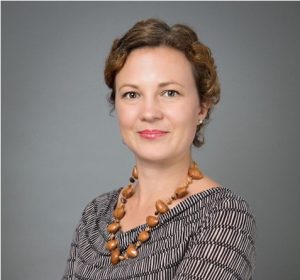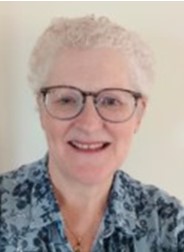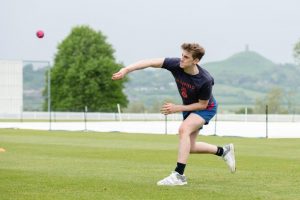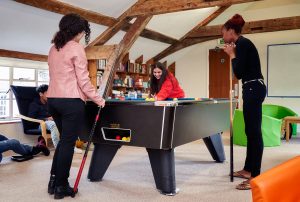
- This event has passed.
BSA virtual half-day seminar – Understanding Executive Functioning Skills: Supporting boarders with life management, emotions and goals

- Date: October 05, 2022
- Time: 14:00 – 16:00
- Cost: Full Member – £100, Affiliate Member – £150, Non-member – £200
- Audience: Head, SLT, Inclusion Lead, Head of Boarding, Teaching and Boarding staff
- Platform: Zoom (online)
Course outline
The aim of this half day seminar is to provide an opportunity to learn more about the importance of the management system of the brain – known as executive functioning skills and to consider strategies that can be used to support pupils.
Training topics will include
The three main areas of working memory, cognitive flexibility (flexible thinking) and inhibitory control (including self-control) will be unpacked. When people struggle with executive function, it impacts them at home, in school, and in life because the skills involved support goal setting, planning and completing tasks.
Executive function is responsible for many skills including: paying attention; organizing, planning, and prioritising; starting tasks and staying focused on them to completion; understanding different points of view; regulating emotions and self-monitoring. Executive functioning skills usually develop quickly in early childhood and into the teen years, but are developing into the mid-20s. Some people struggle with EF and this can cause challenges during childhood, as a teenager and young adult.
We will hear from an EF expert about what executive function skills are and how they impact our lives. We will also hear directly from school staff about adjustments and proactive work that has made a positive impact in their settings.
Learning outcomes
Attending this half day seminar will help delegates increase their knowledge and understanding of the importance of supporting executive functioning for all pupils, but particularly for those who have weaker EF function. Delegates will hear about a range of practical strategies, to adopt, adapt or use and will leave with the understanding and confidence to build on current practice.
Trainer:
 Zoe Marsden MDG (Master of the Dyslexia Guild with Level 7 Postgraduate Certificate in Dyslexia/ SpLD conferring qualified teacher and assessor status), QTS, LLM, BA Hons
Zoe Marsden MDG (Master of the Dyslexia Guild with Level 7 Postgraduate Certificate in Dyslexia/ SpLD conferring qualified teacher and assessor status), QTS, LLM, BA Hons
Zoe runs her own business in educational consultancy and assessment (zoebeezer.com); she carries out SpLD assessments, advises parents and advocates for them, provides training services, as well as offering tutoring and coaching.
Prior to doing this she was the Assistant Head of Inclusion and Well-being at an independent secondary school; a role which included leadership of the learning support department and SENDCo of the school. Other roles have included being SENDCo and Head of Learning Support at an independent all-through school (6 weeks to 18 years), as well being Head of Learning Support at an academically selective grammar school. Zoe has also been Head of Pastoral Care (Girls). She has extensive experience of working with parents, schools, and external agencies to meet the needs of neurodivergent pupils.
Zoe gained qualified teacher status in 2001 and has taught in a range of settings from mainstream to independent schools, and from primary age to university lecturing.
Zoe is a qualified Specialist Assessor and regularly undertakes private assessments of pupils with suspected literacy related SpLDs and dyslexia. She is also a qualified Specialist Literacy Intervention and Dyslexia teacher and Level 1 Accredited Executive Functions Coach.
Prior to devoting her career to special educational needs Zoe specialised as a Criminal Law Solicitor and Litigator. She holds a Masters in Criminal Law Litigation (LLM).
Zoe is the mother of four children (two girls and identical twin boys); one of her children has Inattentive ADHD and ASC, and another has Combined Type ADHD – she has ongoing experience of how to parent a neurodivergent child.
Zoe is currently using the experience she has gained during her teaching career, as well as being a parent of neurodivergent children, to co-author a book for parents of children with ADHD.
Victoria Bagnell
 Victoria has always been passionate about inclusion and neurodiversity. Diagnosed with Dyslexia aged 9, Victoria struggled throughout her education. Despite her challenges Victoria read Geography at the University of Cambridge, before launching her own chain of delicatessens in London. Later she was awarded Outstanding by the Open University for her PGCE in Secondary Geography and went on to focus on working with neurodivergent children. Victoria has dedicated her life to raising awareness of critical brain functions for learning and personal development – our executive functions. Victoria is a well-known public speaker, training facilitator and published co-author, she also consults widely within education globally. Victoria works with people every day who have been adversely affected by their experiences in British societal systems (families, schools and workplaces). She is committed to helping mental health professionals to better understand the inner workings of the brains of people they serve so that they can: be truly empathetic towards their challenges; signpost essential services; and fully support them on their journey to self-actualisation.
Victoria has always been passionate about inclusion and neurodiversity. Diagnosed with Dyslexia aged 9, Victoria struggled throughout her education. Despite her challenges Victoria read Geography at the University of Cambridge, before launching her own chain of delicatessens in London. Later she was awarded Outstanding by the Open University for her PGCE in Secondary Geography and went on to focus on working with neurodivergent children. Victoria has dedicated her life to raising awareness of critical brain functions for learning and personal development – our executive functions. Victoria is a well-known public speaker, training facilitator and published co-author, she also consults widely within education globally. Victoria works with people every day who have been adversely affected by their experiences in British societal systems (families, schools and workplaces). She is committed to helping mental health professionals to better understand the inner workings of the brains of people they serve so that they can: be truly empathetic towards their challenges; signpost essential services; and fully support them on their journey to self-actualisation.
Liz Fernandez, SENDCO, The Royal Prep School, Hindhead
 Liz has over 30 years’ experience of working in state and independent nurseries and schools in Surrey. She has supported children with a wide range of difficulties and is passionate about helping pupils learn about their strengths and weaknesses so they can be the best individuals possible. Liz is a qualified specialist teacher and assessor and is currently working as SENDCO at an independent prep school, supporting neurodiverse pupils with differences such as dyslexia, dyspraxia, autism, ADHD and speech and language challenges.
Liz has over 30 years’ experience of working in state and independent nurseries and schools in Surrey. She has supported children with a wide range of difficulties and is passionate about helping pupils learn about their strengths and weaknesses so they can be the best individuals possible. Liz is a qualified specialist teacher and assessor and is currently working as SENDCO at an independent prep school, supporting neurodiverse pupils with differences such as dyslexia, dyspraxia, autism, ADHD and speech and language challenges.
In 2018, Liz attended a lecture by Dr Bettina Hohnen & Imogen Moore-Shelley from Connections in Mind about executive functions. This was a turning point in her career, a ‘lightbulb moment’ which described the cognitive skills that underpin learning. and explained why some of her pupils (and colleagues!) found some skills so difficult to engage with. Liz then trained with Connections in Mind to be an EF coach. Learning about executive functions has changed the way she approaches what she does and how she does it. Liz believes that everyone, young and old, deserves to understand what makes them tick and how to use their strengths to make the world a better place. It also helps to develop an understanding that everyone is different, so we no longer ‘tolerate’ or ‘accept’ difficulties, but ‘include’, ’embrace’ and ‘celebrate’ uniqueness.






